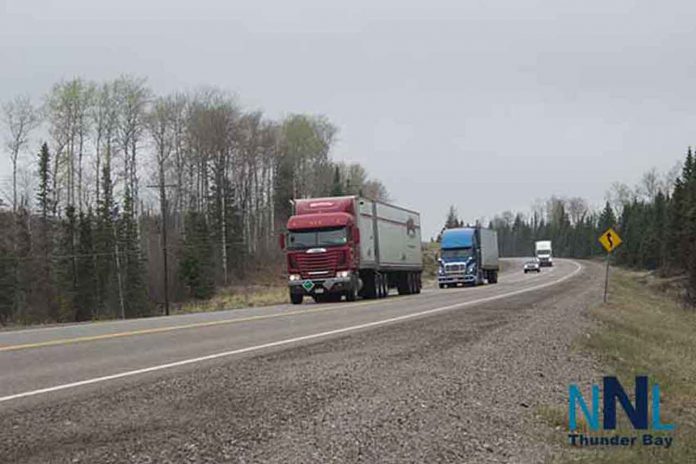Thunder Bay – POLITICS – The Federation of Canadian Municipalities is calling on all three political parties to focus on transportation. FCM states that it is key for parties to develop a sustainable funding model for inter-community passenger bus service. This is critical to the economy and to a national transit network that’s equitable and accessible.
There has not been a lot of discussion on transportation and infrastructure during the campaign.
Over the course of the past ten years, inter-community travel has seen the demise of Greyhound Bus, and see many communities not have access to inter-community bus travel.
FCM Platform on Public transit and transportation
- Commit to a multi-year solution to pandemic-induced transit operating shortfalls to protect shared investments in building out Canada’s transit networks. Otherwise, continuing shortfalls until ridership fully recovers will force cities to scale back service levels and/or job-creating capital improvements—disproportionately impacting the millions of Canadians who rely on transit to access essential services and participate in economic life.
- Maintain permanent, predictable capital funding for transit expansion to reduce congestion, shorten commutes, and help create net-zero communities. This starts with maintaining $3 billion in permanent annual funding starting in 2026-27. Canada’s transit plan should continue to support both urban and rural mobility needs, including the full range of expansion projects—subways, regional rail, light rail, bus rapid transit—alongside low-to-zero emission fleets, and on-demand and fixed-route projects in rural areas.
- Commit to develop a sustainable funding model for inter-community passenger bus service. These threatened services are critical to smaller communities, to our national economy, and to a national transit network that is equitable and accessible. In communities of all sizes, transit services are disproportionately relied upon by women, racialized and InIndedigenous people, students, seniors, and persons with disabilities.
- Expand funding for rail safety, including grade crossing improvements, to make communities safer and contribute to local compliance with the federal Grade Crossing Regulations.
It used to be that bus travel was pretty simple, a person could get on a bus in Vancouver and travel across the country.
Today that isn’t possible.
The Green Party platform supports both inter-community bus travel and better national rail service. The rural caucus in the House of Commons has been looking seriously at the issue.
The issue of safer inter community transportation is also part of the recommendations raised in the national inquiry into Murdered and Missing Indigenous Women and Girls.

Kasper Transportation CEO Kasper Wabinski says, “The Coast to Coast Bus Coalition is reaching out to FCM to engage in meaningful conversation about how both organizations can align their objectives and work together to support a successful outcome in the future. We have not spoken with FCM at this time. We cannot comment on any details as the CCBC, but I am personally happy to see FCM take intercity transportation issues seriously and make official recommendations.”
“Kasper Transportation 100% owes Marcus Powlowski credit and enormous gratitude for his office and team’s support and advocacy with his party to help us qualify for federal loans and grants to support our company during these difficult times. His office helped us overcome many seemingly impossible obstacles. Marcus recognizes the importance of essential services, and his government took action to protect vital services and our intercity bus sector. Kasper Transportation staff hold Marcus in very high regard for his acts and professional conduct”.
“Like many businesses affected by COVID19, we would be struggling to survive, like airlines and other industries in the tourism and transportation sectors. I can say for a fact that from all candidates in southside, Marcus and his team are the most well versed and educated on the intercity transportation file. Marcus took our file, championed it within his party, and helped us spread awareness and educate other MP’s and officials on the importance of intercity busses. Marcus’ office is an “A Team” and championed many other important files. Marcus earned his right as an MP and has proven his dedication to the riding. We hope that the Liberal party is willing to continue working with the industry leaders and the CCBC to solve the issues and challenges that plagued the intercity transportation network”.
“I wish other candidates on the south side took the same level of interest and educated themselves on our critical role. We provide the region with crucial transportation for health, business, and personal reasons. We also operate a robust, fast, and affordable parcel services to under-serviced areas and connect the entire northwest into a secure parcel by bus network. We service most of the lowly populated regions of northwest Ontario. Regardless of the willingness of the candidates to engage in debate on intercity bus transportation topics during the 2021 election, our doors are open to any successful candidate who wishes to discuss our goals and objectives. We will work with the successful candidate and the ruling party,” concluded Wabinski, a founding member of the Coast to Coast Bus Coalition.
The coalition formed by bus operators across Canada looking to work with the federal government on this important issue. The CCBC has been lobbying the federal government to take a larger role in this issue.
Across Western Canada, from Sault Ste Marie to Vancouver there are companies providing service. However many places across our region are looking for more service and better connections. And for ways to connect the services.






